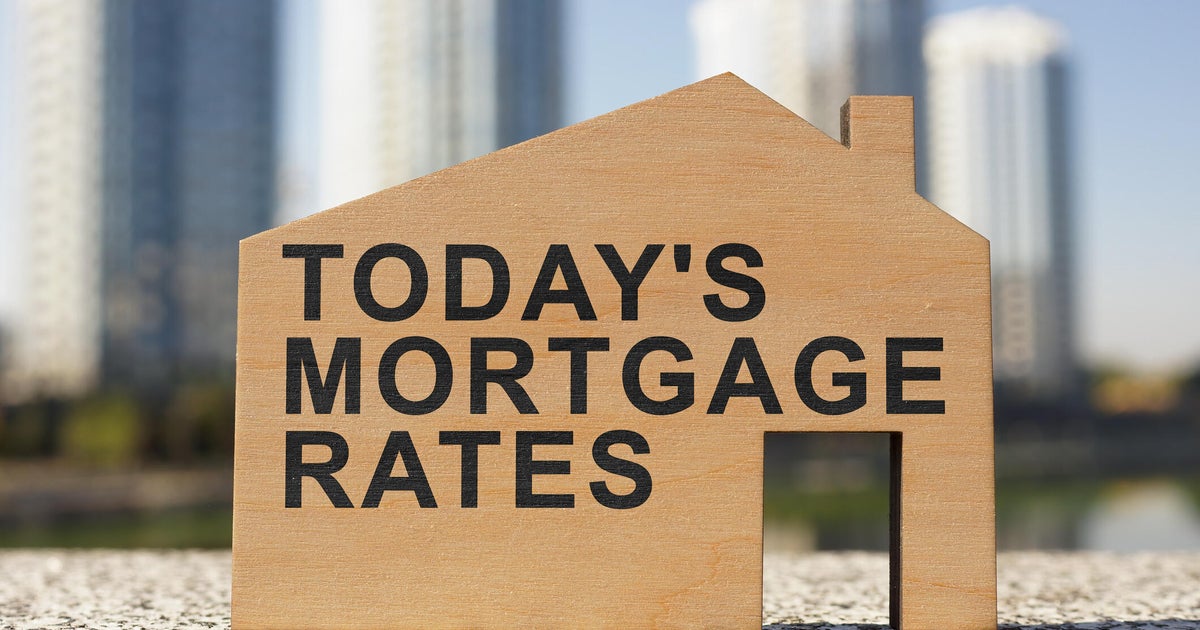Fintech bill critics call it predatory lending
A bill that would give Americans more access to lending power in the exploding financial technology, or "fintech," market took a step forward on Wednesday when the House Financial Services Committee approved it with a 42-to-17 vote. The bill's sponsor, Rep. Patrick McHenry, R.-North Carolina, called it an "important step to ensure low- and middle-income Americans can access our financial markets and promote financial inclusion nationwide" and said he hopes to see it pass the full House soon,
But the fintech measure faces opposition from consumer groups like the Center for Responsible Lending, which claims it will "open the door to triple digit interest rates that would otherwise violate the law." Expansion of the fintech market has also drawn criticism from the Cleveland Federal Reserve Bank, one of the major federal banks that promotes financial stability nationwide.
The powerhouse of the fintech market is "peer-to-peer" (P2P) lending -- also called "crowdsourcing," or "The Gray Market," as it's known in China. Lenders connect with borrowers online through intermediaries who guarantee identity and creditworthiness. Loans can then be granted in as little as 48 hours for as much as $100,000 -- and the identities of the borrower and lender don't necessarily have to be disclosed to one another.
A study by Morgan Stanley (MS) indicates this could be nearly a half-trillion-dollar market within a few years as many domestic firms sprout up to take advantage of this new opportunity. The bill before Congress "encourages greater financial inclusion" for poor and underserved Americans in rural areas who may not have access to banks, particularly if their credit has fallen on hard times.
The Cleveland Fed study claims that P2P lending is a ticking time bomb in which loose lending and cascading defaults could lead to another crash like the one the US suffered in 2008 when the subprime lending bust took down major banks and insurers, disabling the housing market for years.
Astrada points specifically to the high interest rates that prospective borrowers with poor credit could have to pay. Many websites offering P2P loans advertise 5 percent loans with terms of one to five years. This may look good to those who would like to roll their credit card debt of 25 percent into a P2P loan.
But the reality is that for many borrowers, the interest rate could be much higher. He emphasizes that one up and coming P2P lender about to go public claims that its average loan portfolio across its business model is nearly 150 percent.
Can anyone pay off a loan at 150 percent? "Their business model doesn't rely on repayment for profit," said Astrada. "Instead it profits from the rollover fees it gets for repeatedly refinancing the loan, and also takes advantage of its superior lien to other creditors when the client finally does default."
In essence, he said, it's "indistinguishable from payday loans," which is why many of these lenders are shuttering their storefronts and going online.
Supporters say that is exactly the opposite of what they want to do. "This will help underserved Americans access responsible loans online," said Nathaniel Hoopes, executive director of the Marketplace Lending Association, which represents much of the fintech industry.
Hoopes said other research out of the Columbia University, Stanford University and Fordham Univesity law schools showed that a recent court decision had "sharply reduced" the availability of credit for lower credit score borrowers in the three states and that the Philadelphia Federal Reserve bank found that bank-fintech partnership loans "are reaching the underserved with fairly priced products."
One major P2P lender, LendingClub, also took exception with the Cleveland Fed's findings.
"P2P lending helps Americans by offering better priced loans and granting responsible credit to those who have historically been abused by high-cost lenders," a company spokesperson said. "Researchers at the Federal Reserve banks of Philadelphia and of Chicago reached this very conclusion in a July 2017 report that relied on LendingClub data. Unfortunately, the Cleveland Fed study is not about P2P lending. Rather, 75 to 90 percent of its data set includes the very actors that we are competing against to provide better options for borrowers. It is therefore no surprise the Cleveland Fed study came to a very different conclusion."
Although the bill claims to protect investors, it contains some questionable language. For example, "a loan that is valid at inception cannot be usurious upon subsequent sale." The bill also allows lenders to leapfrog state laws that limit interest rates, such as South Dakota. They can then charge what they want and be protected by the new federal law. It would "open the floodgates to predatory lenders," said Astrada.
The Cleveland Fed study concured that many P2P loans resemble "predatory loans" and are granted to people least able to defend themselves or pay them off. It goes on to explode several of what it calls "myths" that Congress is using to promote this legislation.
First, it calls into question who is doing the lending. Instead of a pool of average investors trying to make a reasonable return, the Cleveland Fed study said the P2P lending market has been usurped by hedge funds, banks and insurance companies. "Institutions are now the single largest type of P2P investor," said the study, "responsible for triple digit growth."
The main reason why even traditional lenders such as banks are getting into this market is the lack of oversight. "They have less regulation than traditional loans made by banks and credit unions," said Alex Horowitz, senior research officer at the Pew Charitable Trusts, which studies the banking industry. "Pew's research indicates that small-loan markets work best with clear rules so that they attract traditional lenders, and that the lenders compete on a level playing field that has strong consumer protection."
The Cleveland Fed study said with this kind of expansion, fintech has seen come serious problems. More than 18 million consumers are now carrying balances that total $15 billion dollars, and the delinquency rate rises with each new year of origination -- 2013 loans are now delinquent at an 11 percent rate.
Far from helping people improve their credit, borrowers with P2P loans tend to see their total debt climb, according to the Cleveland Fed study, which used data from thousands of transactions recorded by TransUnion (TRU), a credit reporting agency. The credit scores of non-P2P borrowers rose much more than those who took the deals.
The Cleveland Fed study also indicated that most P2P borrowers, contrary to the intent of the congressional bill, could already get loans from traditional banks if they were so inclined.
Then why go to the online market? Perhaps convenience. P2P lenders advertise a quick turnaround and anonymity. One of the deficits of traditional banking, Pew's Horowitz said, is "regulatory uncertainty and lack of automation."
But anonymity violates a basic rule of lending, which is "know your counterparty." And that could be one reason why the Cleveland Fed study envisions the P2P market imploding in a few years. "It has the potential to destabilize consumer balance sheets," it warned, and compared P2P to the subprime mortgage market just before its crash in 2008.
Horowitz has found a few holes in the study, such as the lack of definitive evidence on whether these loans "hurt or help people." Certainly, people with good or decent credit can get P2P loans at decent rates. But lower-income people, the type who would allegedly be helped by the proposed legislation, may find themselves building a dependency on P2P that ultimately leads to defaults and, possibly, a national financial crisis, according to the Cleveland Fed.



